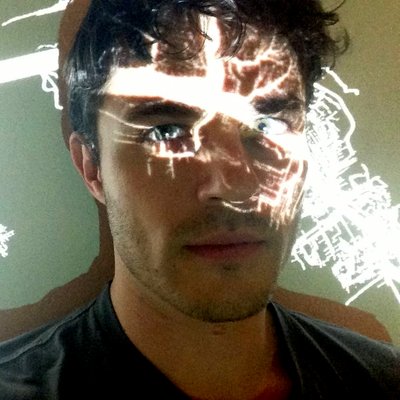Unveiling the largest conference in the history of the Bitcoin community, what was discussed in Hong Kong?
Reporter: Jaleel, Cookie, BlockBeats
Author: Jaleel, BlockBeats
Last April, also in Hong Kong, the Bitcoin Ordinals community held its first gathering. According to random interviews conducted by BlockBeats reporters at the main event, Web3 Festival, only a few attendees were familiar with the Ordinals protocol or Bitcoin NFTs.
In just one year, so many significant events have occurred in the Bitcoin space: the rise of the Ordinals protocol, the approval of Bitcoin spot ETFs, a vibrant Bitcoin ecosystem, and Bitcoin completing its fourth halving… The situation is vastly different now; compared to last year, this year's Bitcoin ecosystem gathering was noticeably more lively. Over these four days, BlockBeats reporters attended various events, sharing their personal experiences and observations in this article.
The Behind-the-Scenes Story of Casey's "Virtual Casino"
Casey Rodarmor, the founder of the Ordinals protocol, was undoubtedly the busiest person throughout the conference, with crowds comparable to a fan meet-and-greet. There was always a large group of people surrounding him, eager to squeeze in for a chat, reminiscent of the scenes where Vitalik was surrounded at past Ethereum conferences.

Whenever Casey participated in roundtable discussions and sharing sessions, the audience was always packed.

Casey giving a speech
Many friends from the community wanted to take photos with him, and he always readily agreed, appearing very down-to-earth, seemingly having even learned a few standard poses for photos. Compared to Vitalik's reserved demeanor in social settings, Casey appeared more at ease, maintaining eye contact while conversing.
Previously, Casey jokingly said that if the "Runes ecosystem" did not reach a market cap of $1 billion within a month of its launch, he would prepare to commit seppuku. Although the current market cap has not yet met this target, there are still a few days left until Runes officially completes its first month, so it is not yet time for Casey to "fulfill" his joking promise. However, it is true that no community members have asked Casey about this matter so far.
At the Ordinals Asia conference, Casey delivered a very interesting presentation filled with information. During this, he mentioned the podcast "Hell Money," which he started with Aaron about two years ago.

When Casey shared this image, the Chinese attendees laughed.
At the same time, Casey indeed understood some of the dissatisfaction from the Chinese community, such as the perception that the Runes protocol lacks innovation. Therefore, he also mentioned that compared to complex technologies like Taproot Assets and RGB, he respects these technologies and projects but prefers to create simpler things for everyone, which led to the development of the Runes protocol.
"Simple things are easier to succeed; complex things are harder to accomplish," Casey stated, emphasizing this as an important insight of his.
On the last night at the Grand Wizard Party, BlockBeats reporters finally managed to squeeze in next to Casey. Although he was reluctant to accept official interviews from the media, he clearly enjoyed engaging with community members.

Left: Casey; Right: BlockBeats reporter Jaleel
I asked Casey if he knew that many friends in the Chinese community now refer to him as "God C," similar to how the Chinese community referred to Vitalik as "God V" in the past. Casey looked me in the eye and said he was aware, but he emphasized that he is just an ordinary guy like everyone else.
Domo, Without a Mask, Clearly More Chill
In contrast to Casey, Domo, the founder of BRC20, seemed less talkative. The crowd around Domo was also smaller, largely because people were unclear about his true appearance.
Domo has always maintained a high level of anonymity; in previous public events, he was always seen wearing a hat, sunglasses, and a mask. Due to the lack of visible facial features, Domo was even mistaken for being Chinese.

Domo's previous conference photo, "fully armed."
This time at the conference, although Domo was not very willing to take photos, he was no longer wearing a mask or sunglasses.
According to Bitcoin ecosystem observer and player 0xSea, who shared with BlockBeats, on the first day of the Bitcoin Asia conference, Domo casually walked around the venue, and almost no one could recognize him. His demeanor was more relaxed than ever.

Domo's conference photo this time (sixth from the left), image source: Jack Kong
In conversations with community friends, a frequently mentioned topic was: "With Runes, will BRC20 still have a market?" or "Will BRC20 disappear?" There were quite a few differing opinions on this issue.
First, most people seemed unaware of the specific differences between Ordinals, Runes, and BRC20. This indicates that there is still a significant need for education and awareness in the market.
Secondly, after communicating with some founders of projects developing Bitcoin DeFi protocols, BlockBeats found that some of them believe BRC20 is more suitable for DeFi assets because BRC20 has been in development longer than Runes. Although the emergence of Runes has significantly impacted the meme of BRC20, it is expected that more Bitcoin DeFi projects and tokens with actual value will emerge in the future.
However, a considerable number of community members and projects have directly stated that BRC20 is about to be phased out because Runes has optimized the BRC20 framework and also saved on gas fees.
Capital is Also Fond of Bitcoin
At this Hong Kong conference, many VC firms participated, including several attendees from traditional VC and family offices, who are extremely interested in investment opportunities in the blockchain industry, especially Bitcoin.
The event hosted by Waterdrop Capital was undoubtedly the liveliest VC session. Before the party started, around twenty to thirty friends were already gathered outside waiting to enter. Due to strict capacity limits at the venue, even Casey had to wait downstairs for a long time before going upstairs.


According to incomplete statistics, most of the projects that Waterdrop Capital has invested in within the Bitcoin ecosystem are very well-known, including Merlin, Bevm, B2, Bison Labs, CKB, DLC.link, OmniBOLT, Map Protocol, NostrAssets, UXUY, Unisat, Lumoz, Nubit, Ordz Games, BitSmiley, Satoshi Protocol, and so on. It can be said that Waterdrop Capital is currently the most active domestic VC investing in the Bitcoin ecosystem.
In fact, last year, when BlockBeats interviewed Waterdrop Capital co-founder and managing partner Dashan, he expressed great optimism about the crypto market in 2024, which led to the launch of two digital asset funds in collaboration with China Taiping Investment Management (Hong Kong) Co., Ltd.
The Ordinals NFT Community is the Favorite Place for Foreigners
If Bitcoin Asia is more like a good venue for business cooperation, then Ordinals Asia is undoubtedly a great place to make friends and have fun.
In this Bitcoin gathering, the most degenerate community is undoubtedly the Ordinals NFT community, especially the Pizza Ninjas, Taproot Wizards, and Blob.
The founder of Pizza Ninjas, TO, has a thick beard that earned him the nickname "Bearded Man," and many friends even think he bears a slight resemblance to Twitter founder Jack Dorsey.

Left: BlockBeats reporter Cookie; Right: Pizza Ninjas founder TO
TO stood out in bright orange Ninja Pizza-themed attire on the yacht, and some in the community jokingly referred to him as the "Daji" of the Ordinals circle. The Ninja Pizza community chartered a yacht with over forty holders participating. The reason more holders could not join was that the yacht simply could not accommodate them, so TO hosted a separate dinner for the remaining twenty or so holders the following night.

The party hosted by Taproot Wizards took place on the last night of Ordinals Asia, with people dressed in wizard costumes filling the venue, and there was even a pool for everyone to enjoy.


Taproot Wizards team member Tyler Whittle
After communicating with some English-speaking Ordinals players, BlockBeats reporters found that they also felt the way the Grand Wizards were bathing and receiving white slips was somewhat "PUA," indicating that it is not only the Chinese community that struggles to appreciate the charm of bathing.
At the venue, BlockBeats reporters also "caught" Tyler Whittle, a member of the Taproot Wizards team. When faced with this issue, he stated that the team is aware of the cultural differences between China and the West, so they will find ways to strengthen communication with the Chinese community.

Left: Taproot Wizards team member Tyler Whittle; Right: BlockBeats reporter Jaleel
Experiencing the atmosphere at the Wizards' event, one can truly feel the strong cohesion of the Grand Wizards community, which is quite impressive. The proportion of foreign community members from various places was exceptionally high, and people of various identities, including artists and developers, were present, all having a great time.
As for the Blob holders' gathering, it was similarly crowded, and the food provided at the venue was the most unique, featuring authentic local Hong Kong cuisine.
Blob purchased the epic rare satoshi marking Bitcoin's fourth halving for 33 BTC and released an epic rune, making it one of the best runes in terms of community atmosphere. The recursive rune concept submitted by Blob is also expected to be a narrative worth looking forward to in the future.
The two founders of Blob, Eloc, a contributor to the Ordinals protocol code, and Nuro, an Ordinals OG artist, were present to create art for everyone, including T-shirts and masks. Nuro was very quiet while creating, which was somewhat of a contrast.

Blob founder Nuro
BlockBeats and the Blob team also discussed many details during the project's advancement, including the initial idea of using Free Mint for distribution. However, upon the suggestion of Dr. Golden Dog, the Blob team ultimately decided to go with a direct airdrop.
During the airdrop period, the team was also participating in NFTNYC2024 events, so Eloc and Nuro were running around New York, attending art exhibitions, VIP backstage lounges, Times Square, etc., while using their mobile hotspot to engrave Blob and airdrop to the community.

Left: BlockBeats reporter Jaleel; Right: Blob founder Nuro
Bitcoin Layer 2 Will Remain a Major Narrative
At the main venue of the Bitcoin Asia conference, the first thing that catches the eye upon entering is the Unisat booth and the booths of its invested projects.
Additionally, the most visible booths were those of Bitcoin Layer 2 projects. Many attendees felt that there are indeed a lot of Bitcoin Layer 2 projects. The current state of the Bitcoin ecosystem is that there are many Layer 2 chains but few applications, which is somewhat the opposite of the Ethereum ecosystem.

It seems that for a long time to come, BTC Layer 2 will remain an important narrative. In the short term, those that can emerge will be those with good "fathers," while in the long term, only those with genuine user demand will survive.
In private conversations with many BTC Layer 2 project teams, they candidly stated, "We are not strictly Layer 2; it's more about market promotion needs," as there is currently no definitive final definition for Bitcoin Layer 2 in the market.
Ethereum took seven years to reach its current level of scalability. At present, it seems impossible for Bitcoin Layer 2 to achieve similar scalability in just one or two years; there will be many trials and errors along the way.
Solana and Bitcoin: 1+1 Greater Than 2
Since the launch of Runes in April, more than a dozen trading platforms, including Unisat and OKX Web3 Wallet, supported Runes market trading on the first day. Although Magic Eden started trading a bit later, on April 22, it quickly surpassed other platforms to become the leading platform with the best liquidity in the Runes market.
The rapid rise of Runes can be attributed mainly to the vast liquidity and market foundation it has established on Solana. Additionally, Magic Eden has its own wallet, which can attract users from both the Bitcoin and Solana ecosystems, facilitating seamless transactions between the two platforms.
In addition to Magic Eden, BlockBeats reporters also spoke with several other projects promoting interoperability between Solana and Bitcoin, such as Zeus, THORSwap, and Cube.Exchange.
At the Bitcoin Devcon on May 8, Zeus Network founder Justin shared his vision of using Solana as a Bitcoin Layer 2 network (L2) during his speech. He criticized some projects for merely using Bitcoin as "gas," arguing that this approach fails to fully leverage Bitcoin's true value and potential.
Justin stated that Solana was chosen as Bitcoin's L2 due to its high performance, low cost, and strong user and developer community. He then detailed how the Zeus network connects to the Bitcoin mainnet using a "slot" version, forming a 1.5-layer solution that not only enhances the performance of Bitcoin applications but also broadens its scalability.

Zeus founder Justin
As a cross-chain DEX aggregator based on THORChain, THORSwap can complete token exchanges between multiple chains with minimal slippage. According to THORSwap's paper, their most recent large transaction recorded was 114.7545 $WBTC (worth $7.4 million) exchanged for 114.0027 BTC, with a slippage of only 0.05%.
Through THORSwap, liquidity between Solana and Bitcoin can also be easily converted on-chain. According to CoinGecko data, THORChain's RUNE and Stack's STX have been among the best-performing tokens over the past year, often following Bitcoin's price increases.
Bartosz, the founder of Cube.Exchange, had previously been developing on Solana. After the launch of Runes, they implemented the functionality to buy Runes with USDC or sell Runes to obtain USDC. In his view, Bitcoin and Solana are very complementary in terms of account models, communication layers, and developer communities.
Bartosz believes that the collaboration between these two distinctly different communities will strengthen the market. Introducing Bitcoin's decentralized spirit into Solana is undoubtedly beneficial, while bringing popular products from Solana into the Bitcoin ecosystem will also create significant synergies.















